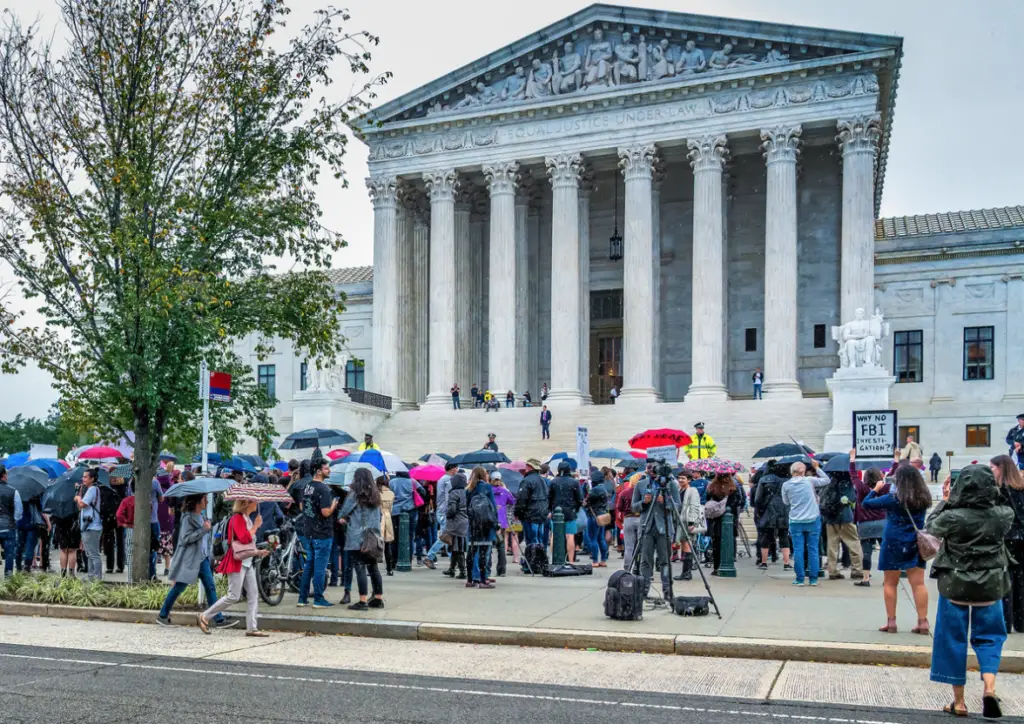October 2018 opened with confusion among the American political set over an investigation into Supreme Court nominee Brett Kavanaugh after multiple women publicly accused him of sexual assault.
One woman, California psychology professor and Stanford University researcher Dr. Christine Blasey Ford, appeared during a day-long hearing before the Senate Judiciary Committee in late September to answer questions about what exactly happened at that party sometime during the summer of 1982. Her testimony was taken by a career sex crimes prosecutor from Maricopa County, Arizona named Rachel Mitchell, who duly provided a five-page report, which read in part:
In the legal context, here is my bottom line: A “he said, she said” case is incredibly difficult to prove. But this case is even weaker than that. Dr. Ford identified other witnesses to the event, and those witnesses either refuted her allegations or failed to corroborate them. For the reasons discussed below, I do not think that a reasonable prosecutor would bring this case based on the evidence before the Committee. Nor do I believe that this evidence is sufficient to satisfy the preponderance-of-the-evidence standard.
It is true, as was reported by multiple outlets, that Mitchell flatly stated in her report that she believes that given Blasey Ford’s testimony, there is no case against Supreme Court nominee Brett Kavanaugh. However, much of the coverage of this assessment lacks basic context, as pointed out by prosecutor-turned-reporter Deanna Paul in The Washington Post:
Criminal procedure permits drawn-out and detailed direct and cross-examinations in a court of law controlled by a judge and in front of an impartial jury. Mitchell had no independent opportunity to do either.
She acknowledged this during the hearing, asking Ford whether she knew that the process — five-minute intervals of questioning — was not the ideal environment to determine a sexual assault survivor’s credibility. Thus, it’s also not how any reasonable prosecutor would determine whether to move forward.
Mitchell also appeared to acknowledge this in her report:
There is no clear standard of proof for allegations made during the Senate’s confirmation process. But the world in which I work is the legal world, not the political world. Thus, I can only provide my assessment of Dr. Ford’s allegations in that legal context.
Because Mitchell only questioned Blasey Ford and not Kavanaugh during the hearing (questions for him were handled by the Senate Judicial Committee), and because this was simply a nomination hearing rather than a criminal investigation, this is less a report and more a legal analysis based on available evidence heard by Mitchell at that time. Therefore, it is true that this was her conclusion, but not true that hers was the definitive statement on the topic.
The Federal Bureau of Investigation is looking into multiple sexual assault accusations against Kavanaugh.
- CBS. "Analysis: Challenges ahead for female prosecutor hired to question Ford."
- Associated Press via ABC15.com. "Maricopa County prosecutor picked to lead Kavanaugh hearing."
- Paul, Deanna. "Rachel Mitchell says her Kavanaugh report is what a ‘reasonable prosecutor’ would say. It’s not." The Washington Post.
- Bresnahan, John; Bade, Rachael; Gerstein, Josh. "Rachel Mitchell's disappearing act confirms GOP blunder." Politico.

